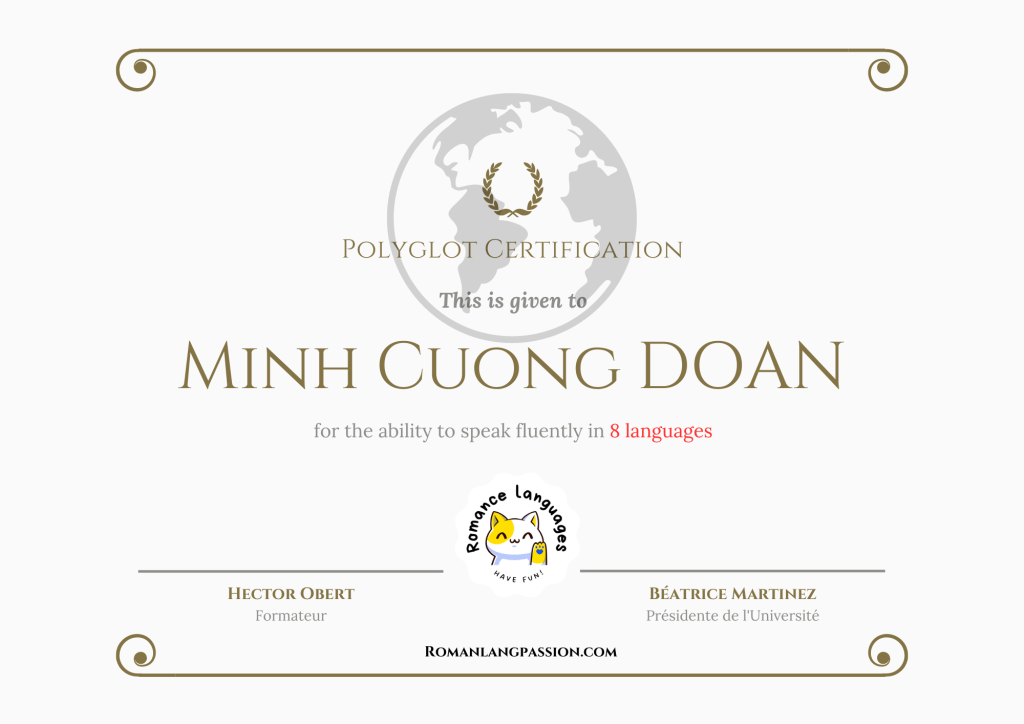Hi! Are you considering getting a language certification to showcase your language abilities? Well, it can be quite a dilemma for some people. While some of us believe that certifications are an essential way to demonstrate their linguistic competence, others find them to be a considerable investment in terms of time and money.
In this post, we’ll explore the advantages and disadvantages of having a language certification, weigh the benefits and drawbacks, and guide you on how to determine if pursuing a language certification is right for you.
Here are some definite perks to consider:
1. Standardized Assessment
With language certifications, you get a standardized assessment of your language skills that’s recognized worldwide by professionals and institutions. This means that if you’re looking for job opportunities or further studies in foreign countries, your certification can be an invaluable asset.
2. Learning Experience
Preparing for and taking the certification exam can be a great way to learn and improve your language skills. It can help you pinpoint areas where you need more work and improve your test-taking strategies. In the end, you’ll not only be more confident in your language skills, but you’ll also have a better understanding of the language as a whole.
3. Personal Achievement
Having a language certification can be a significant source of personal achievement and pride. It shows that you’ve put in the hard work and dedication to learn a new language and have achieved a certain level of proficiency. So, if you’re looking for a boost in confidence and self-esteem, getting certified in a language might be just the ticket.
And now are some potential drawbacks :
1. Cost
Language certifications can be pretty pricey, and the fees for taking the exam can add up quickly. Depending on the language and the level of certification, you may need to shell out a few hundred to several thousand dollars.
2. Time Commitment
Preparing for a language certification exam requires a significant time commitment, which might not be feasible for everyone. Some learners may prefer to focus on other aspects of language learning, such as speaking with native speakers or immersing themselves in a foreign culture.
3. Limited Value
While language certifications can be valuable for certain job opportunities or further studies, they may not be necessary for every situation. A certification cannot necessarily prove that you can speak the language fluently enough to communicate effectively with foreign clients or understand the cultural nuances of a particular market.
But be careful! Most language centers deliver certificates which don’t actually have any value.
Not all language center certificates are created equal. A simple piece of paper with the name of your language center and the number of hours you studied might not be worth much, as it doesn’t necessarily indicate your language proficiency. In contrast, an official certificate showcases that you’ve reached a certain level of proficiency in a language, and can be recognized by professionals worldwide.
For European languages and Japanese, the CEFR scale is often used to measure language proficiency. This standardized scale makes it much easier to quantify your skills, rather than just saying “I studied for X hours.” It’s becoming more and more common worldwide and is a reliable way to prove your language proficiency.
Examples of Language Certifications:
There are several language certifications available, depending on the language you are learning. Some of the most well-known certifications include:
- English: TOEFL (Test of English as a Foreign Language), IELTS (International English Language Testing System), TOEIC (Test of English for International Communication).
- Spanish: DELE (Diplomas of Spanish as a Foreign Language), SIELE (International Spanish Language Evaluation Service).
- French: DELF (Diploma in French Language Studies), DALF (Diploma in Advanced French Language Studies), TEF (Test d’Évaluation de Français), TCF (Test de Connaissance du Français).
- Chinese: HSK (Hanyu Shuiping Kaoshi).
- German: TestDaF (Test Deutsch als Fremdsprache).
- Japanese: JLPT (Japanese Language Proficiency Test).

How to Decide Whether to Pursue a Language Certification:
Whether you pursue a language certification depends on your personal goals and situation. Here are some factors to consider:
- Your Goals: If you want to use the language for work or further studies, a certification may be necessary. For instance, to study in the US, you need to have at least an IELTS 6.5. However, if you are learning for fun or travel, a certification may not be as important.
- Your Budget: Language certifications can be costly, so you need to consider whether you can afford to take the exam and pay for the preparation materials.
- Your Time: The time commitment required to prepare for the exam can be substantial, so you need to consider whether you can invest that amount of time.
- The Value of the Certification: You need to consider whether the certification has value in your desired field. Research the job opportunities or further studies you are interested.
A certification for Polyglot, why not?
So, have you ever thought about how cool it would be if there was an official certification for polyglots? I mean, it would be amazing to have a piece of paper that says you can speak multiple languages fluently, right? Sure, there are already language proficiency tests out there, but they don’t really recognize the full scope of a polyglot’s skills, like the ability to communicate effectively in different cultural contexts.
I think having a certification specifically for polyglots would be super helpful, especially for people who want to work internationally or just want to show off their language skills. And it would be a fun way to celebrate and encourage multilingualism! What do you think?

In short, having a language certification is beneficial when it comes to assessing your language proficiency, especially if you want to use the language for work or further studies. It helps professionals and institutions recognize your actual level, which can open up more opportunities for you. However, it’s important to make sure you choose a certification that is recognized and has value in your desired field.
In my opinion, no one likes a language certificate, but sometimes, we have no choice. Learning a language in a funny way, it’s always our choice, isn’t it? Don’t stress by these certifications, to me, it doesn’t prove anything.









